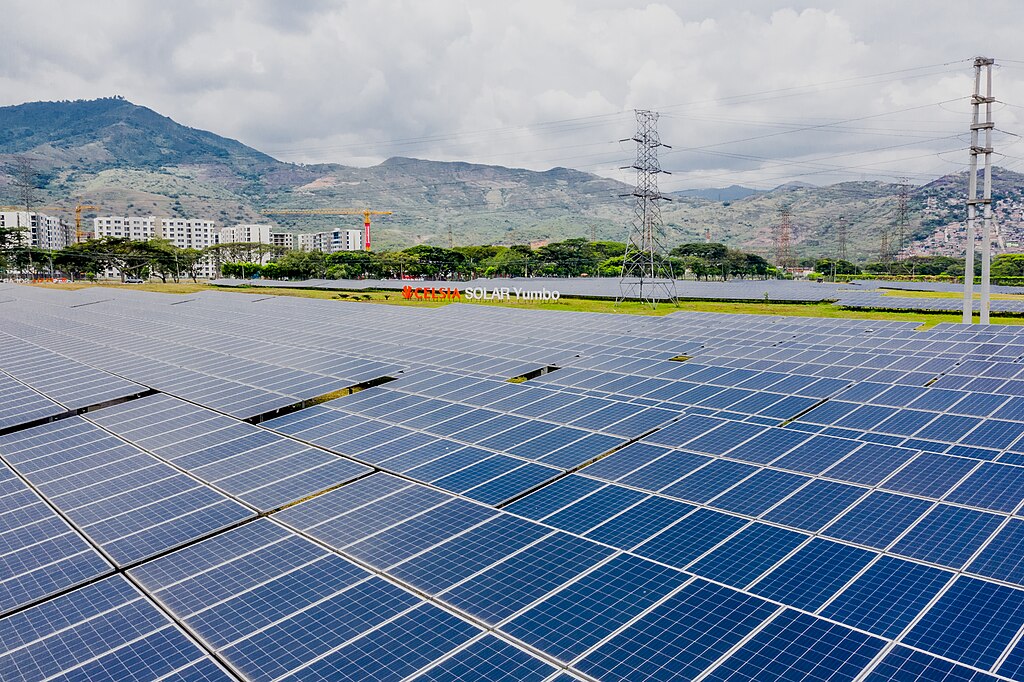
Colombia is promoting energy self-sufficiency for indigenous and other minorities in the country, through a decree that allows their association with companies in the field of renewable energies. The Ministry of Mines and Energy launched the Energy Communities program whose purpose is to enable communities in the country to be self-sufficient through the use of generators that use renewable energies.
This program, which is one of the most ambitious goals of the National Development Plan, is one of President Gustavo Petro’s bets for a fair energy transition. To this end, the government has announced the creation of energy communities in Barranquilla and La Guajira, in the Caribbean region, which will generate their energy from solar panels.
Joint ventures
According to the government decree, ethnic and rural minorities will be encouraged to develop joint ventures, with private companies or the public sector, to generate their own energy. Eligible groups include rural workers and indigenous and Afro-Colombian communities; the communities must first meet their own energy needs with the projects, with the possibility of commercializing their surpluses.
This guideline is in line with one of the main premises of the Colombian government, which advocates the progressive abandonment of the use of fossil fuels, such as oil and coal derivatives. As of today, and in just one month, 768 energy communities in Colombia have applied to this program, which allows them to cooperate with each other, by means of a contract, to generate, distribute and sell energy supply.
Slow progress towards renewables
So far the announced advances in favor of renewable energies, such as solar or wind energy, have been held up by repeated delays in the issuing of licenses. In addition, there has also been opposition from some communities, such as the Wayuu in the department of La Guajira.
Until now, little or nothing has been done in the country to move towards the use of renewable energies, especially considering that Colombia is a major oil producer. In this sense, the country only generates 1% of its energy through the use of renewables, while 70% is produced through the use of hydroelectric power. Of the more than fifty renewable energy projects announced since 2019, none is operational today in the country.
Promoting renewable energy is in line with the international agreements of the recent climate summit, COP28, in Dubai, for the progressive abandonment of the use of fossil fuels, in the context of the fight against global climate change.
Experiences in other countries
In this sense, learning from the experiences of other countries can help progress towards renewables. According to data from 2021, there is a federation of some 1,900 energy communities in Europe, benefiting more than 1.2 million users. The EU country with the largest number of energy communities, according to a 2020 study by the Joint Research Center of the European Union, is Germany, with 1,750 Communities, followed by Denmark, with 700 and the Netherlands, with 500.
A paper by the Politecnico di Milano estimates that, by 2025, Italy’s energy communities will number around 40,000, involving approximately 1.2 million households, 200,000 offices and 10,000 SMEs in that country alone.
In all this, the political commitment of the country is essential, to guarantee legal security to individuals or companies in Colombia that bet on this type of production, guaranteeing them the profitability of their investments. It is worth remembering, in this context, the case of Spain, when due to a change of government 10 years ago, Spanish President Mariano Rajoy annulled his predecessor’s legislation on renewable energy generation.
This political decision led to the economic ruin of many small investors who had opted to take advantage of state benefits and invest in renewable energy, particularly solar.
The citizen, protagonist of the energy transition
After the installation in La Guajira of the first energy community of the government’s program, with the indigenous Wayuu people, it is expected that this pioneering experience will serve as a model for all those applications that will start operating soon. The objective is to seek the involvement of citizens, to the point of making them protagonists in the country’s energy transition.
For this to be possible, the State facilitates the immediate benefit of all those communities that bet on renewable energies and decide to become energy communities, generating their own resources in this area.
This was emphasized by Lisbeth Villacarpio, director of the Institute for Planning and Promotion of Energy Solutions (IPSE), in the first experience in the Guajira region, a month ago. “The direct benefit is for 1,453 people, who will also enjoy 100% sustainable energy”.
See all the latest news from Colombia and the world at ColombiaOne.com. Contact our newsroom to report an update or send your story, photos and videos. Follow Colombia One on Google News, Facebook, Instagram, TikTok and subscribe here to our newsletter.


